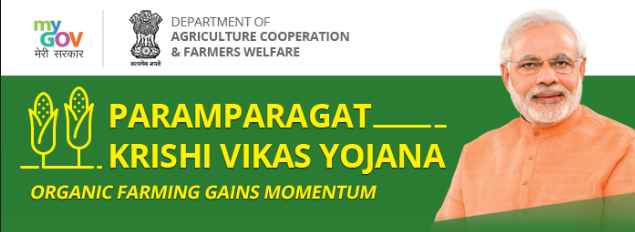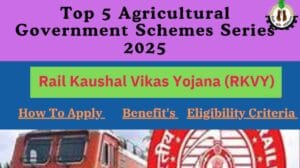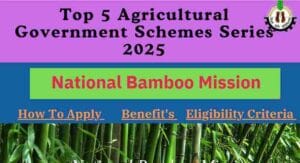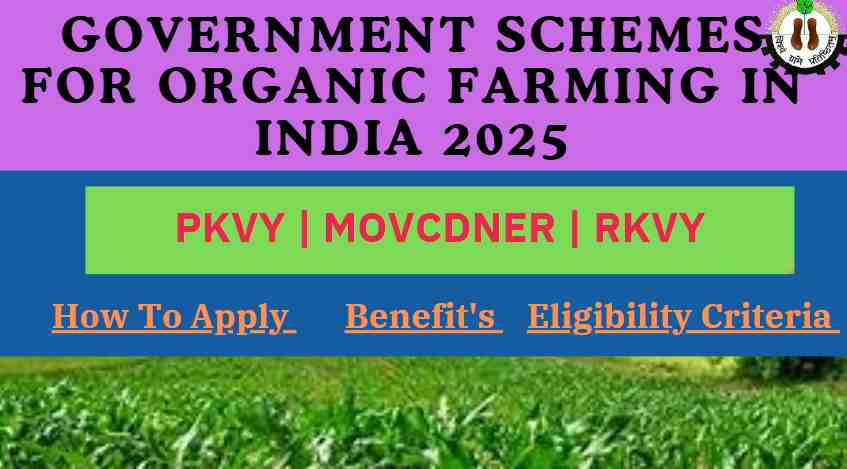
In India, organic farming is not just a trend; it has become a necessity. When I saw during my BSc in Agriculture how farmers were doing chemical-free farming with government support, I realized that there is a future in it.
That is why the Indian government has also strengthened government schemes for organic farming in India 2025, providing various supports like subsidies, training, certification, and NABARD loans.
If you also want to start organic farming, this blog is a roadmap for you—in which you will get the latest breakdown of the schemes, application process, and a practical guide.
Top Government Schemes for Organic Farming in India 2025
The focus of the government is now not just on production but also on promoting sustainable and chemical-free farming. Several of the best schemes for organic farming were launched or updated in 2025, which are proving to be game-changers for farmers.
Below are some top PM organic farming schemes and certification-based initiatives that are most active and beneficial in 2025—along with the process to implement them.
Objective: To promote organic farming based on traditional knowledge.
Aid: Financial help of up to ₹50,000 per hectare for 3 years.
Real Example: An alumnus of our college established a 5-acre organic farm using this scheme, which is today selling his organic products on e-commerce platforms.
How to apply Paramparagat Krishi Vikas Yojana 2025
- You can take the form for PKVY by visiting your district Krishi Vibhag.
- The scheme is cluster-based—at least 20 farmers form a group and apply.
- Training and implementation take place at the district level, in which you get the support of organic inputs and certification.
2. Mission Organic Value Chain Development for North East Region (MOVCDNER)
Focus Area: North-Eastern states of India.
Support: End-to-end value chain support from organic farming to processing and marketing.
Ground Story: A friend of mine is exporting organic ginger using this scheme in Arunachal Pradesh.
How to apply for MOVCDNER scheme 2025
- This scheme is only for the farmers of new states.
- You can apply through your state horticulture department or Krishi Vibhag.
- It is a cluster-based model—after group formation, you get help for organic inputs, training, certification, and export.

Objective: To provide organic modules and training along with agricultural development.
Support: Organic farming modules, skill development, and cluster-based farming models according to each state.
Experience: In RKVY, farmers can create a sustainable model by mixing both modern and traditional practices.
How to apply Rashtriya Krishi Vikas Yojana 2025
- You can see RKVY projects and call for applications on your state agriculture department website.
- Each state has different guidelines.
- Training programs and subsidies are available at the state level, for which you can fill out the form online or offline.
4. Jaivik Bharat Certification Initiative 2025
Launched By: FSSAI (Food Safety and Standards Authority of India)
Benefit: Official organic certification label, which is used in the domestic market as well as in the export market.
Truth: Without certification, trust cannot be built in the organic produce market. You can get premium pricing with the Jaivik Bharat label.
How to apply for Jaivik Bharat Certification Initiative 2025
- You have to take the Participatory Guarantee System (PGS-India) or third-party certification.
- For certification, you can register on pgsindia-ncof.gov.in or the APEDA website.
- After certification, you can apply for the Jaivik Bharat logo from FSSAI.
Subsidy & Loan for Organic Farming in India 2025
The craze for organic farming is increasing in India – that’s why both the government and the banks are providing many schemes and loans to support the farmers. But many farmers still do not know “How to apply for organic farming subsidy in India?” or “How to apply for organic farming loan?” So don’t worry – everything has been explained here in simple language.
Available subsidy schemes for Organic Farming 2025
1. Paramparagat Krishi Vikas Yojana (PKVY):
- Subsidy support up to ₹50,000 per hectare (for 3 years)
- It covers input cost, training, and certification.
2. Mission Organic Value Chain Development (MOVCDNER):
- Especially for Northeast India.
- The cost from organic farming to processing and marketing is covered.
3. National Horticulture Board (NHB) Subsidy:
- Up to 50-75% subsidy for compost units, bio-fertilizers, and organic inputs.
4. Rashtriya Krishi Vikas Yojana (RKVY):
- State-specific projects in which subsidy is available for organic farming.
Eligibility Criteria for organic farming Subsidy 2025
- The applicant should be a registered farmer or FPO (Farmer Producer Organization).
- You should have a minimum of 1 acre of land.
- The cluster/group model of organic farming is preferred.
- You must obtain Participatory Guarantee System (PGS) or third-party certification.
How to Apply for Organic Farming Subsidy?
Step-by-step process:
- Get the land document and Aadhaar card ready.
- Visit your district Krishi Vibhag or the online state agriculture portal.
- Fill out the form and apply for PKVY, RKVY, or MOVCDNER.
- Register with PGS India for organic certification.
- Apply for a loan at the nearby NABARD branch or cooperative bank.
Certification Process for Organic Farming 2025
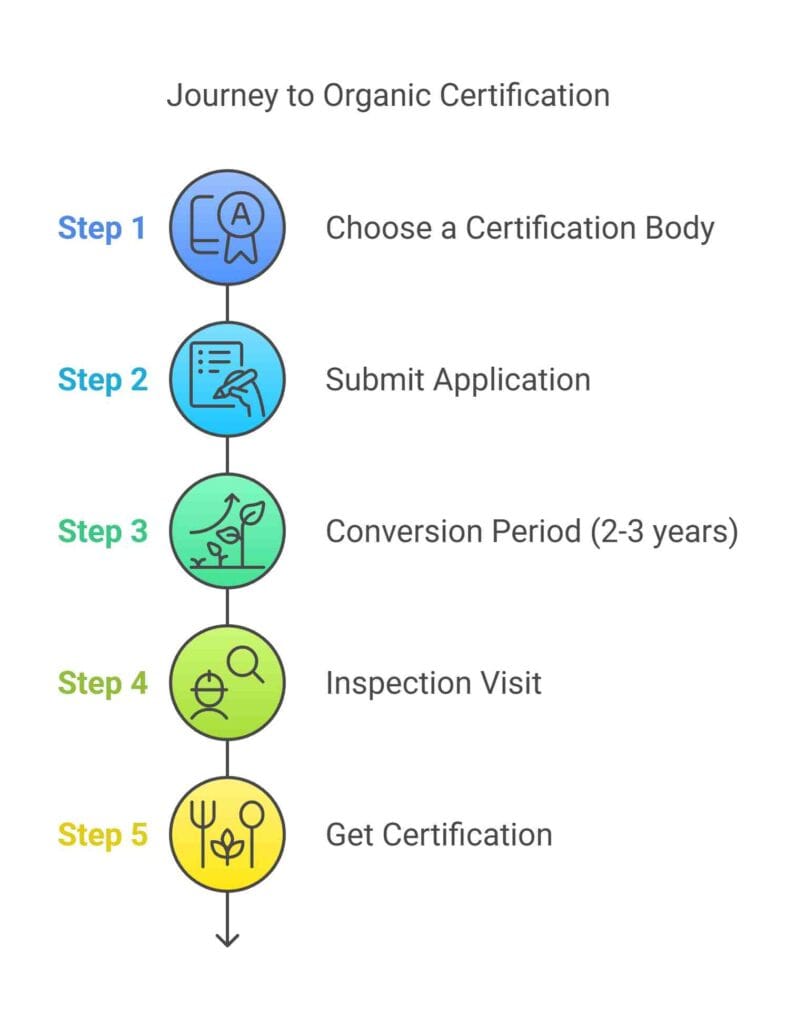
Step-by-Step Certification Process
Choose a Certification Body
- Under APEDA, certified agencies like ECOCERT, INDOCERT, SGS India, etc.
Submit Application
- The farm layout, crop plan, and land documents are to be given.
Conversion Period (2-3 years)
- During this time, you have to follow strictly organic practices.
Inspection Visit
The expert from the certification agency does a field inspection.
Get Certification
- Get certified by NPOP (National Program for Organic Production) or Jaivik Bharat.
Top Recognized Organic farming Certification Agencies
- APEDA (Agricultural & Processed Food Products Export Development Authority)
- NPOP (for export level certification)
- PGS-India (free or low-cost option for small farmers)
Government Schemes for Organic Farming PDF Download
Conclusion
The future of organic farming in India is bright — we are getting full support from health-conscious consumers, global export demand, and the government. Be it subsidy, loan, or certification—government schemes for organic farming in India 2025 are with you at every step.
If you too want to do chemical-free farming, then take advantage of the schemes mentioned above, like PKVY, MOVCDNER, and NABARD, and make your farming sustainable.
Start small, grow big—and become organic for the country as well as for yourself. 🌱
Click to Join Our Free WhatsApp Group and YouTube for Agriculture Updates!
Get daily updates, free study material, and the latest schemes, and connect with other agriculture students and farmers.
People also ask
Aramparagat Krishi Vikas Yojana (PKVY): Supports organic inputs, training, and certification.
Mission Organic Value Chain Development for North East Region (MOVCDNER): Assists farmers in the North East with complete value chain support.
Rashtriya Krishi Vikas Yojana (RKVY): Provides funding for innovation and infrastructure in organic farming.
NABARD Schemes: These schemes offer financial assistance for organic farming loans, compost units, and training programs.
PGS-India & Jaivik Bharat Certification: Helps small farmers get low-cost organic certification.
India promotes organic farming through subsidies (PKVY, MOVCDNER), easy certification (PGS-India, NPOP), loans (via NABARD), and farmer training programs. These steps help farmers adopt sustainable and chemical-free farming practices.
The scope of organic farming in India is growing rapidly due to rising demand for chemical-free food, health awareness, and export opportunities. With strong government support, increasing domestic markets, and global recognition, organic farming offers high income potential and long-term sustainability for Indian farmers.
Under the National Horticulture Mission (NHM), farmers get financial assistance for adopting organic farming practices. It includes support for organic inputs, vermicompost units, bio-fertilizers, and certification costs. The goal is to promote eco-friendly horticulture and reduce chemical use.
To increase organic coverage, India needs to expand farmer training, simplify certification, provide better market access, offer higher subsidies, and raise public awareness. Strengthening government schemes and promoting organic exports can also boost organic farming adoption nationwide.
India is promoting sustainable agriculture through organic farming schemes, natural farming, soil health cards, micro-irrigation (PMKSY), and digital agri-tech solutions. These initiatives reduce chemical use, conserve resources, and improve long-term farm productivity.
Related post
Hydroponic farming | |
organic farming | |
Goat farming | |
wheat farming |
The government is giving lakhs of rupees! Adopt theTop 5 Kisan Yojana for may 2025
Top 5 Kisan Yojana for may 2025 By May 2025,...
Read MoreRail Kaushal Vikas Yojana 2025: Free Govt Training with Certificate
How to apply Rail kaushal vikas yojana 2025 “Dreams come...
Read MoreNational Bamboo Mission Explained: A Game Changer for Farmers & Entrepreneurs
“Do you know that India is among the top 3...
Read More
